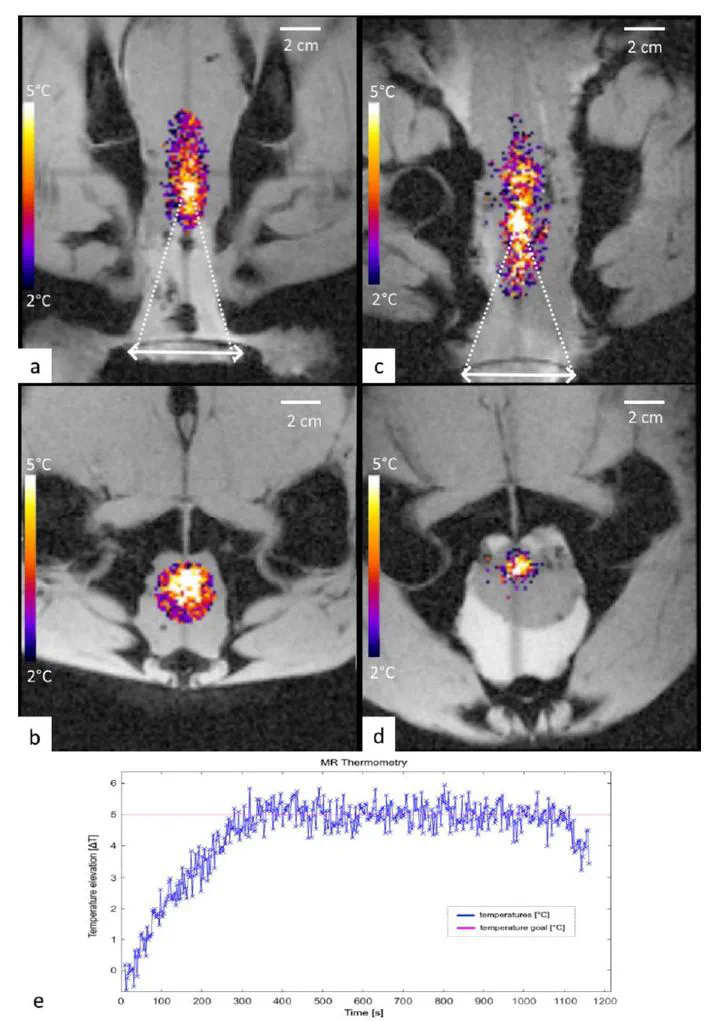A novel concept of transperineal focused ultrasound transducer for prostate cancer local deep hyperthermia treatments
Dec 27, 2022·
,
 ,
,
,
,
,
,
,
,
,
,
,
,
,
,
,
,
,
,
,
,
Pauline Coralie Guillemin
David Sinden
Yacine M’Rad
Michael Schwenke
Jennifer Le Guevelou
Johan Uiterwijk
Orane Lorton
Max Scheffler
Pierre-Alexandre Poletti
Jürgen Jenne
Thomas Zilli
Rares Salomir
 MRI thermometry
MRI thermometry
Abstract
Design, embodiment, and experimental study of a novel concept of extracorporeal phased array ultrasound transducer for prostate cancer regional deep hyperthermia treatments using a transperineal acoustic window is presented. An optimized design of hyperthermia applicator was derived from a modelling software where acoustic and thermal fields were computed based on anatomical data. Performance tests have been experimentally conducted on gel phantoms and ex vivo tissues, under 3T MRI guidance using PRFS thermometry. Feedback controlled hyperthermia (ΔT=5°C during 20 min) was performed on two ex vivo lamb carcasses with prostate mimicking pelvic tissue, to demonstrate capability of spatio-temporal temperature control and to assess potential risks and side effects. Our optimization approach yielded a therapeutic ultrasound transducer consisting of 192 elements of variable shape and surface, pseudo randomly distributed on 6 columns, using a frequency of 700 kHz. Radius of curvature was 140 mm and active water circulation was included for cooling. The measured focusing capabilities covered a volume of 24×50×60 mm3. Acoustic coupling of excellent quality was achieved. No interference was detected between sonication and MR acquisitions. On ex vivo experiments the target temperature elevation of 5°C was reached after 5 min and maintained during another 20 min with the predictive temperature controller showing 0.2°C accuracy. No significant temperature rise was observed on skin and bonny structures. Reported results represent a promising step toward the implementation of transperineal ultrasound hyperthermia in a pilot study of reirradiation in patients with prostate cancer.
Type
Publication
Cancers